How to Use Coconut Oil for Vaginal Dryness
Vaginal dryness is a common problem experienced by many women. It can cause discomfort, itching, and pain during sex. There are several factors that can contribute to vaginal dryness, including menopause, hormonal changes, certain medications, and breastfeeding. While there are many lubricants available on the market, some women prefer to use natural remedies such as coconut oil.
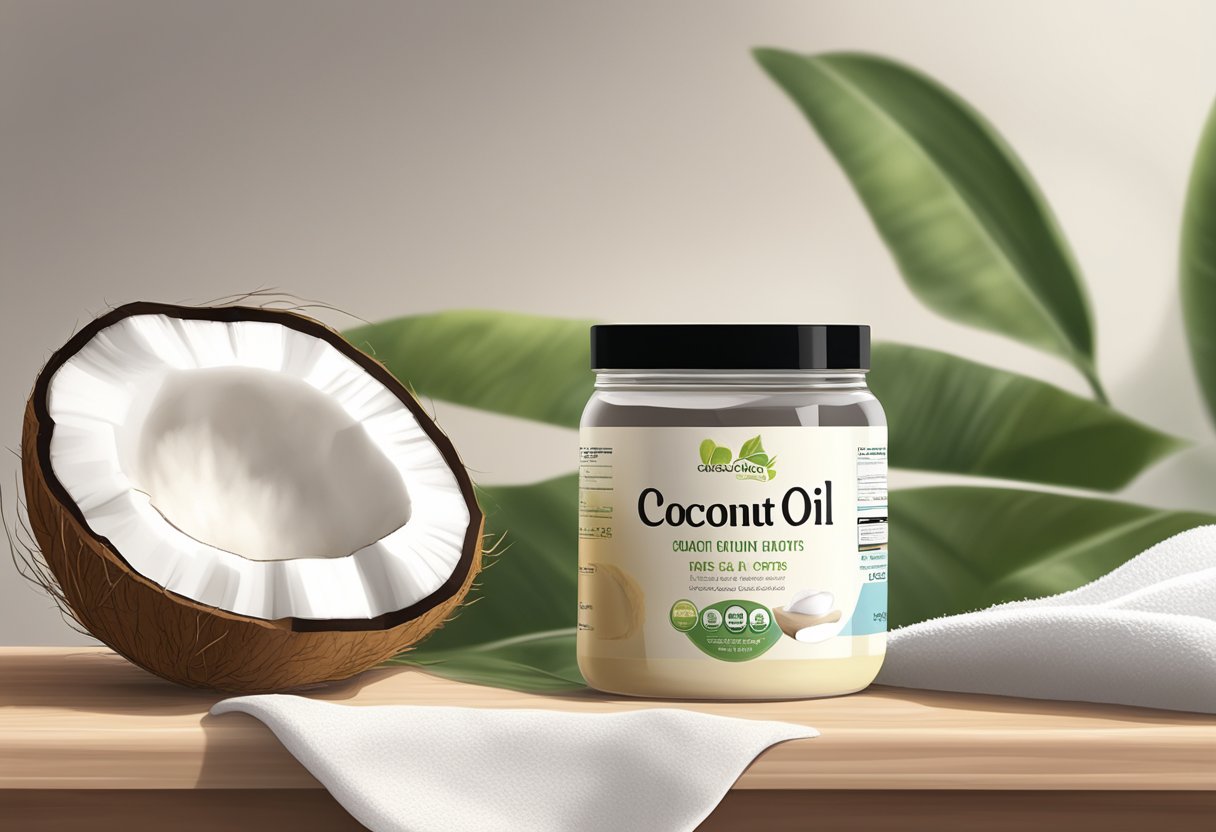
Coconut oil is a natural lubricant that can help to alleviate vaginal dryness. It is free of additives and other possible irritants, making it less likely to cause inflammation in an already sensitive area. Coconut oil can be applied on the opening and inside the vagina right before intercourse. Women can also use coconut oil as a moisturizer during the day to help prevent dryness and discomfort. However, it is important to note that coconut oil should not be used with latex condoms, as oils can cause deterioration of the latex, resulting in a possible breakage or leak.
Overall, coconut oil can be a safe and effective option for women experiencing vaginal dryness. However, it is important to consult with a healthcare provider before using coconut oil or any other natural remedy to ensure that it is safe and appropriate for individual needs.
Benefits of Coconut Oil for Vaginal Dryness
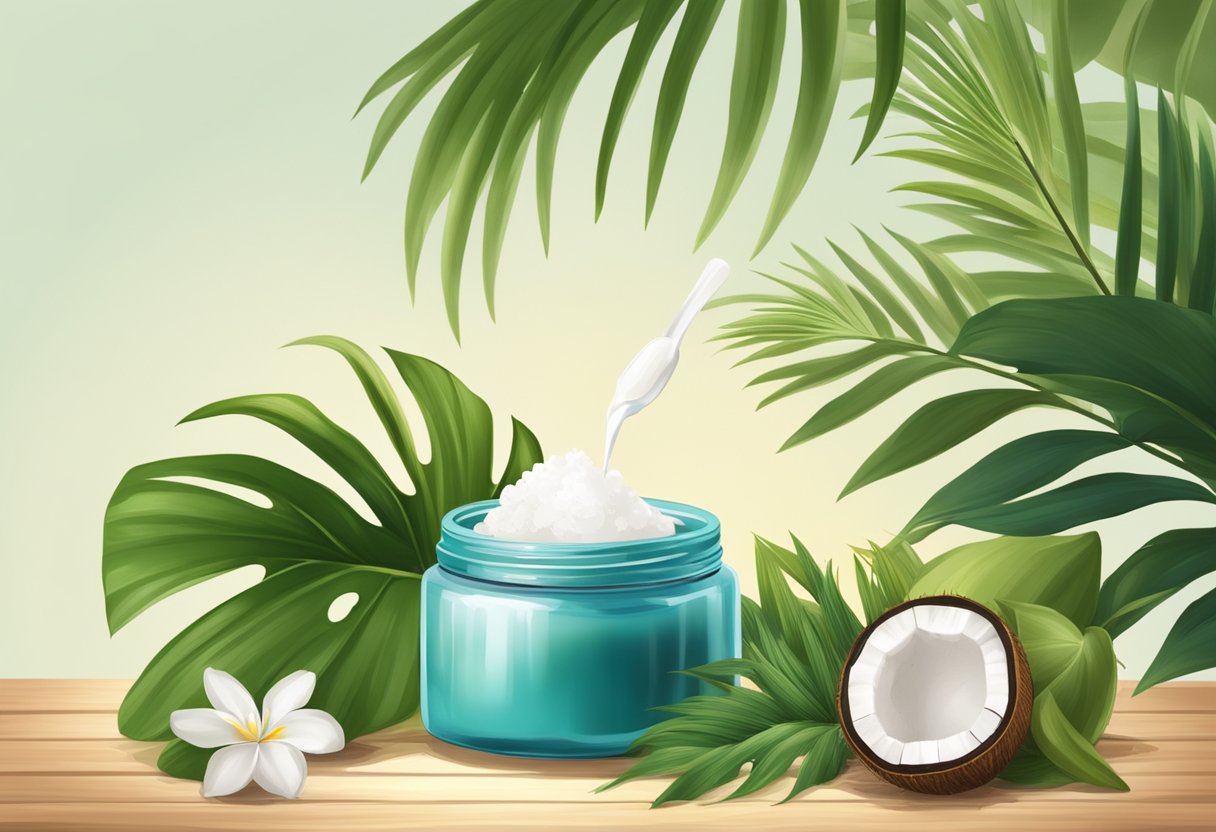
Coconut oil has become an increasingly popular remedy for vaginal dryness. It is a natural lubricant that can provide relief from dryness and discomfort. Here are some of the benefits of using coconut oil for vaginal dryness:
1. Moisturizing Properties
Coconut oil is an excellent moisturizer that can help to soothe dry and irritated skin. It contains medium-chain fatty acids that can penetrate the skin and provide deep hydration. When applied to the vaginal area, coconut oil can help to lubricate and moisturize the skin, reducing dryness and discomfort.
2. Antibacterial and Anti-Fungal Properties
Coconut oil has natural antibacterial and anti-fungal properties that can help to prevent infections. It contains lauric acid, which is known to have antimicrobial properties. When applied to the vaginal area, coconut oil can help to prevent bacterial and fungal infections that can cause dryness and discomfort.
3. Wide Availability and Safety
Coconut oil is widely available and can be found in most grocery stores. It is also safe to use and does not contain any artificial ingredients or chemicals. This makes it an excellent alternative to commercial lubricants that can contain harsh chemicals and preservatives.
While there is limited clinical data to support the use of coconut oil for vaginal dryness, many women have reported positive results. However, it is important to note that coconut oil may not be suitable for everyone. Some women may experience an allergic reaction or irritation when using coconut oil. Therefore, it is recommended to do a patch test before using coconut oil for vaginal dryness.
Understanding Vaginal Dryness

Vaginal dryness is a common condition that affects many women, especially those going through menopause. It is characterized by a lack of lubrication in the vagina, which can lead to discomfort, itching, burning, and pain during sexual intercourse.
There are several factors that can contribute to vaginal dryness, including hormonal changes, certain medications, and medical conditions such as diabetes and autoimmune disorders. Additionally, lifestyle factors such as smoking and excessive alcohol consumption can also increase the risk of experiencing vaginal dryness.
To alleviate the symptoms of vaginal dryness, many women turn to lubricants and moisturizers. While these products can provide temporary relief, they may contain chemicals that can cause irritation or allergic reactions.
Coconut oil is a natural alternative to traditional lubricants and moisturizers. It is rich in medium-chain fatty acids, which have been shown to have antimicrobial and anti-inflammatory properties. Additionally, coconut oil is free from harmful chemicals and additives, making it a safe and effective option for women experiencing vaginal dryness.
It is important to note that while coconut oil can provide relief for vaginal dryness, it is not a substitute for medical treatment. Women who experience persistent or severe symptoms should consult with their healthcare provider to determine the underlying cause and receive appropriate treatment.
Choosing the Right Coconut Oil

When choosing coconut oil for vaginal dryness, it is important to select a high-quality, organic, and virgin or extra-virgin oil. This type of coconut oil is minimally processed and has not been treated with chemicals or pesticides. Here are some tips to help you choose the right coconut oil:
Look for Organic and Virgin or Extra-Virgin Coconut Oil
Organic coconut oil is free from chemicals and pesticides, making it a safer option for intimate use. Virgin or extra-virgin coconut oil is made from the first press of the coconut meat, which results in a higher quality oil.
Consider the Consistency
Coconut oil can come in different consistencies, from solid to liquid. If you prefer a solid consistency, look for coconut oil that is labeled as “cold-pressed” or “unrefined.” If you prefer a liquid consistency, look for coconut oil that is labeled as “fractionated.”
Check the Price
While high-quality coconut oil can be expensive, it should not cost an exorbitant amount. Typically, a liter of organic, virgin or extra-virgin coconut oil should cost between $10-$20. If the price seems too good to be true, it may not be a high-quality product.
Store the Coconut Oil Properly
Coconut oil should be stored in a cool, dry place away from direct sunlight. It can be stored at room temperature, but if it gets too warm, it may melt and change consistency. If this happens, simply place the coconut oil in the refrigerator to solidify it again.
By choosing the right coconut oil, you can ensure that you are using a safe and effective product for vaginal dryness.
How to Apply Coconut Oil
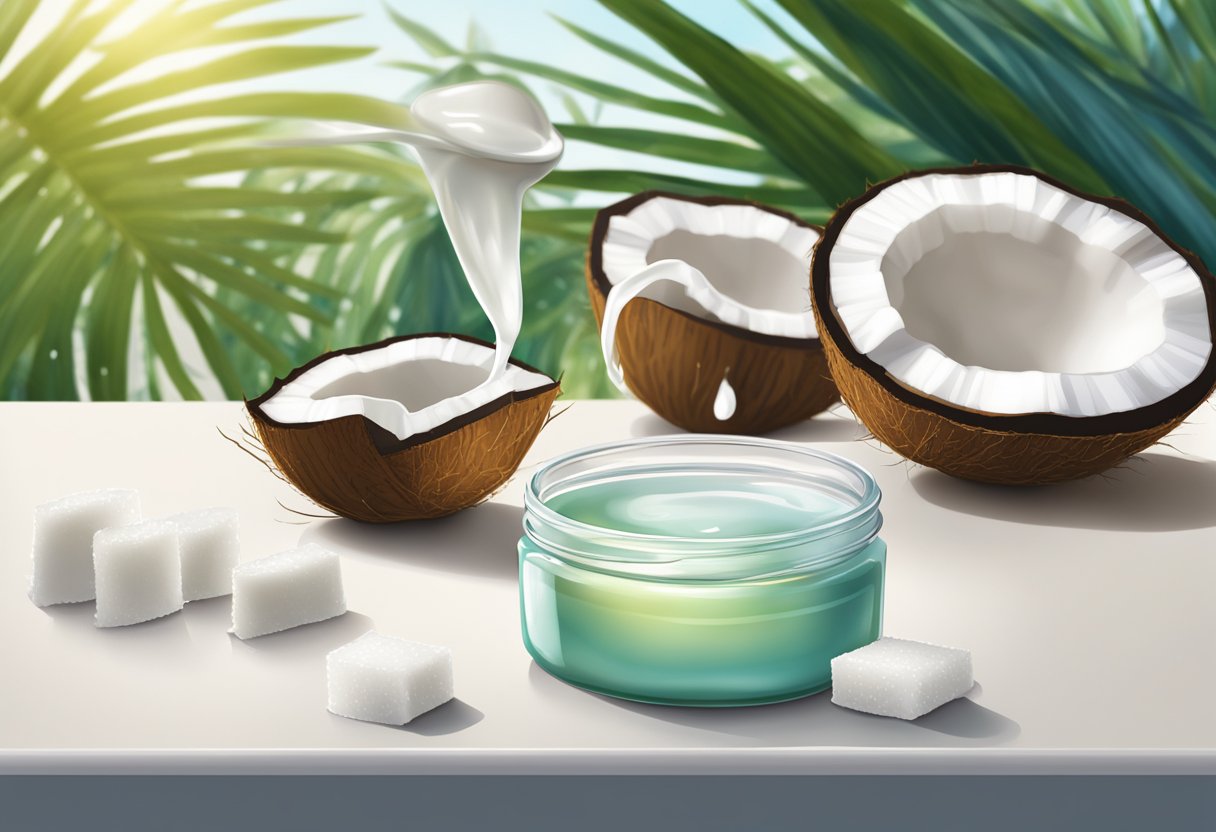
Coconut oil can be applied topically to the vulva and inside the vagina to help alleviate vaginal dryness. Here are some steps to follow when applying coconut oil:
- Wash your hands with soap and water before applying coconut oil to the vulva or vagina.
- If the coconut oil is solid, warm it up by rubbing it between your hands or placing the container in warm water until it melts.
- Apply a small amount of coconut oil to the vulva and massage it gently into the skin. Avoid getting the oil inside the vagina as it can disrupt the natural pH balance and cause irritation.
- If you want to apply coconut oil inside the vagina, use a clean finger or a vaginal applicator to insert a small amount of oil. Start with a small amount and gradually increase as needed.
- If you plan to use coconut oil as a lubricant during sex, apply a small amount to the penis or sex toys before use. Avoid using coconut oil with latex condoms as it can weaken the material and increase the risk of breakage.
It is important to note that coconut oil is not a substitute for medical treatment for vaginal dryness. If symptoms persist or worsen, it is important to seek medical advice from a healthcare provider.
Best Practices for Coconut Oil Use

Frequency of Application
Coconut oil can be used as a natural remedy for vaginal dryness. However, it is important to use it in moderation. Overuse of coconut oil can cause irritation and disrupt the natural pH balance of the vagina. Experts recommend using coconut oil no more than once or twice a week.
Quantity to Use
When using coconut oil for vaginal dryness, it is important to use the right amount. Too much coconut oil can cause irritation and discomfort. Start with a small amount, about a teaspoon, and gradually increase the amount if needed. It is important to note that coconut oil is not a substitute for water-based lubricants.
Hygiene Considerations
Before using coconut oil, it is important to practice good hygiene. Wash your hands thoroughly with soap and water before applying coconut oil to the vagina. Use a clean spoon or applicator to apply the coconut oil. Avoid double-dipping to prevent the spread of bacteria. It is also important to avoid using coconut oil during menstruation or if you have an active vaginal infection.
In summary, coconut oil can be a natural remedy for vaginal dryness. However, it is important to use it in moderation, use the right amount, and practice good hygiene. If you experience any discomfort or irritation, stop using coconut oil and consult with your healthcare provider.
Possible Side Effects and Precautions
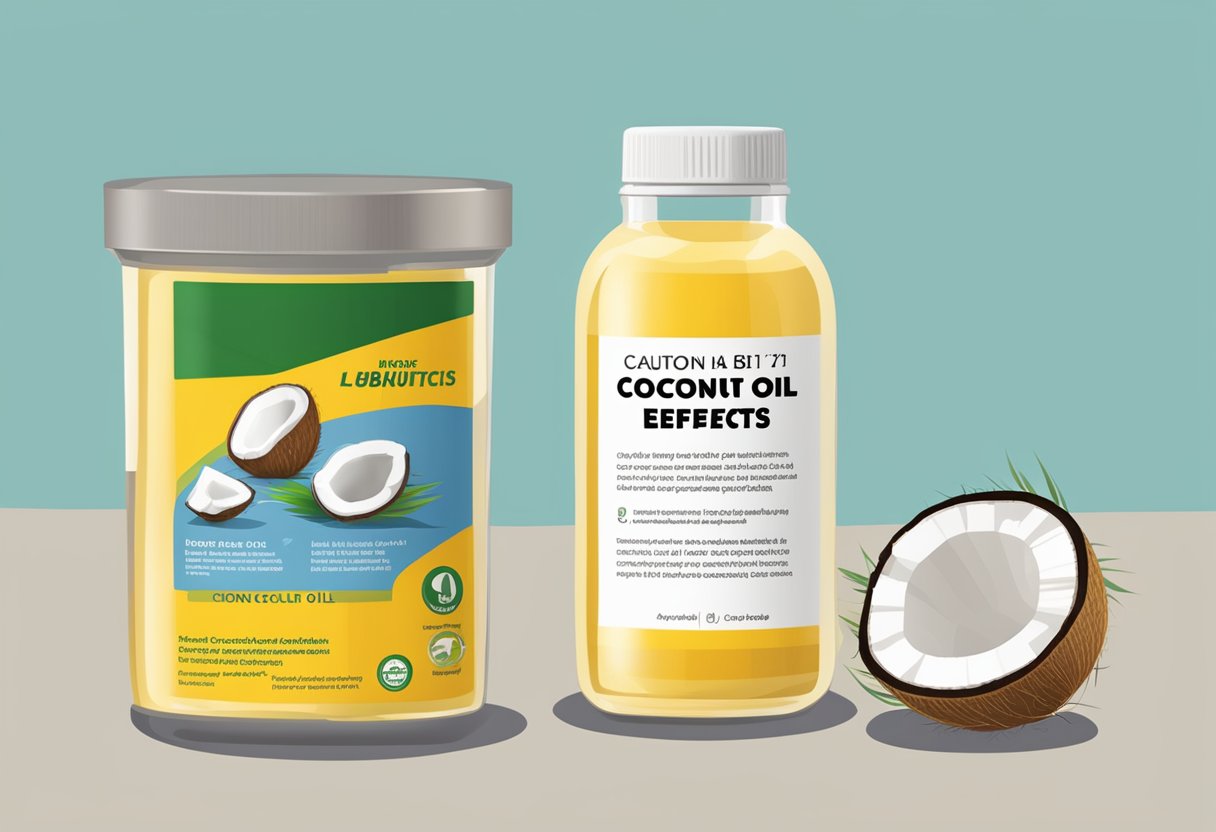
While coconut oil is generally safe and well-tolerated, there are a few things to keep in mind when using it for vaginal dryness.
Firstly, coconut oil may not be suitable for everyone. Some people may be allergic to coconut oil or may experience skin irritation or allergic reactions when using it. It is always a good idea to do a patch test on a small area of skin before using coconut oil for the first time.
Secondly, coconut oil can break down latex condoms, which can increase the risk of unplanned pregnancy and sexually transmitted infections (STIs). If you are using condoms as your primary method of birth control or to protect against STIs, it is best to avoid using coconut oil as a lubricant.
Thirdly, coconut oil may not be suitable for use with certain sex toys or devices. Some materials may be damaged by coconut oil, so it is important to check the manufacturer’s instructions before using coconut oil with any sex toys or devices.
Lastly, while coconut oil is generally safe for internal use, it is important to use caution and common sense when using it for vaginal dryness. If you experience any discomfort, pain, or other unusual symptoms, stop using coconut oil and consult a healthcare provider.
Overall, coconut oil can be a safe and effective natural remedy for vaginal dryness. However, it is important to use it responsibly and to be aware of any potential side effects or risks.
Alternatives to Coconut Oil for Vaginal Dryness

While coconut oil is a popular natural remedy for vaginal dryness, there are other options that can also help alleviate this uncomfortable condition. Here are some alternatives to consider:
1. Water-based lubricants
Water-based lubricants are a popular choice for those with vaginal dryness. They are safe to use with condoms and sex toys and can be easily found in drugstores or online. Some popular brands include KY Jelly, Astroglide, and Sliquid.
2. Silicone-based lubricants
Silicone-based lubricants are another option for those with vaginal dryness. They are longer-lasting than water-based lubricants and can be used in the shower or bath. However, they are not safe to use with silicone sex toys.
3. Vaginal moisturizers
Vaginal moisturizers are designed to be used regularly to prevent and treat vaginal dryness. They are similar to facial moisturizers and can be found in drugstores or online. Some popular brands include Replens and Hyalo Gyn.
4. Hormone therapy
For those experiencing severe vaginal dryness due to menopause, hormone therapy may be an option. This involves taking estrogen in the form of a pill, patch, or cream. However, hormone therapy is not without risks and should only be used under the guidance of a healthcare provider.
It’s important to note that while these alternatives can be effective for some people, they may not work for everyone. It’s always best to speak with a healthcare provider before trying any new treatments for vaginal dryness.
Frequently Asked Questions
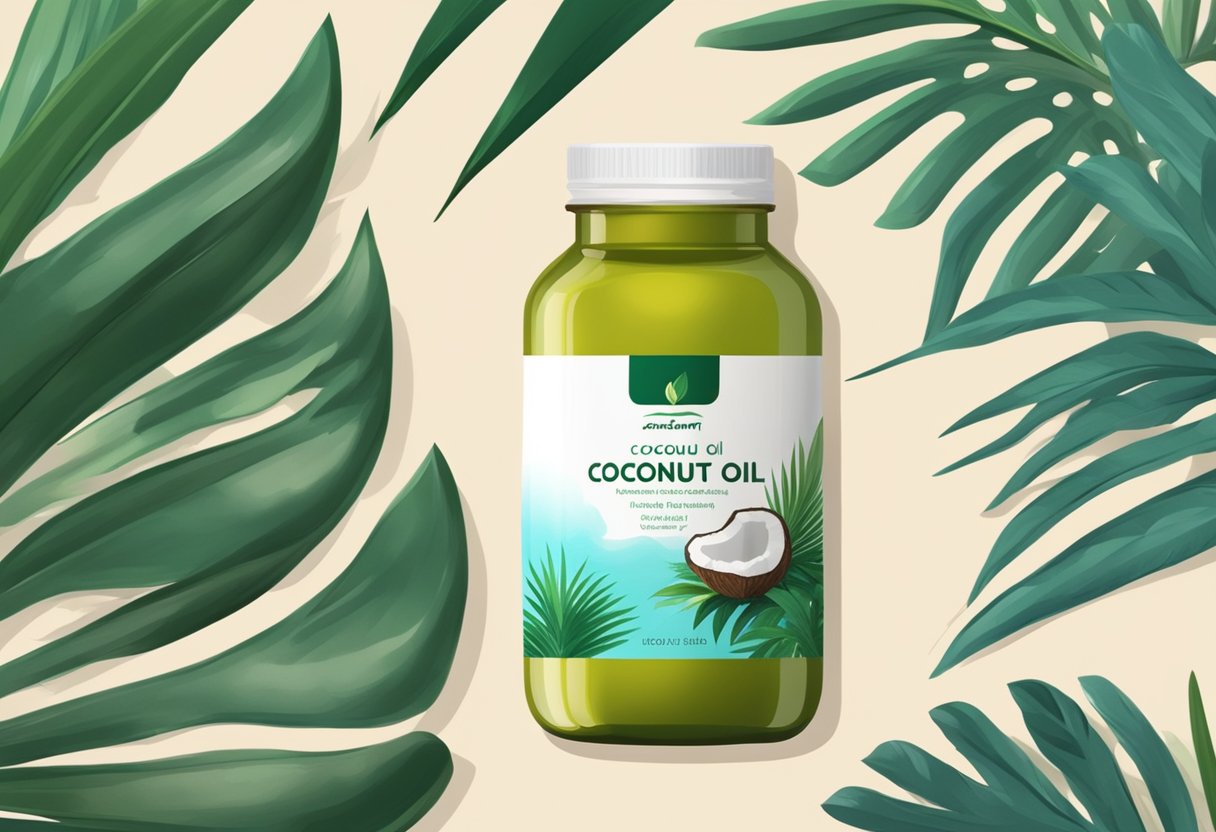
Is it safe to use coconut oil as a lubricant for vaginal dryness?
Coconut oil is generally safe to use as a lubricant for vaginal dryness. It is a natural product that does not contain harsh chemicals or irritants. However, it is important to note that coconut oil can break down latex condoms, increasing the risk of pregnancy and sexually transmitted infections. Therefore, it is recommended to use a non-latex condom or other forms of birth control when using coconut oil as a lubricant.
How can coconut oil be applied for soothing vaginal itching?
Coconut oil can be applied topically to soothe vaginal itching. It can be gently massaged into the vulva and surrounding area to help moisturize and reduce irritation. However, it is important to note that if the itching is caused by an infection, coconut oil may not be effective in treating the underlying condition. It is recommended to consult with a healthcare provider for proper diagnosis and treatment.
What are the risks of yeast infections when using coconut oil on intimate areas?
Coconut oil has antifungal properties and can be effective in treating yeast infections. However, using coconut oil excessively or applying it to areas that are already infected can worsen the condition. It is recommended to use coconut oil in moderation and to consult with a healthcare provider if experiencing symptoms of a yeast infection.
Can coconut oil effectively reduce vaginal odor?
Coconut oil may be effective in reducing vaginal odor by moisturizing the area and reducing irritation. However, if the odor is caused by an underlying condition such as bacterial vaginosis or a sexually transmitted infection, coconut oil may not be effective in treating the condition. It is recommended to consult with a healthcare provider for proper diagnosis and treatment.
What natural alternatives to coconut oil can be used for vaginal dryness?
There are several natural alternatives to coconut oil that can be used for vaginal dryness. These include aloe vera gel, vitamin E oil, and olive oil. It is important to note that not all natural remedies may be effective for everyone, and it is recommended to consult with a healthcare provider for proper diagnosis and treatment.
How does coconut oil impact vaginal pH balance?
Coconut oil is pH neutral and does not significantly impact vaginal pH balance. However, if experiencing symptoms of a vaginal infection or imbalance, it is recommended to consult with a healthcare provider for proper diagnosis and treatment.






